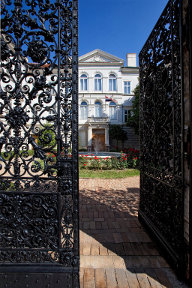POPULATION LOSSES IN CROATIA IN THE SECOND WORLD WAR AND AFTER WAR PERIOD
Abstract
Human losses in Croatia during the Second World and the after war period are an unavoidable aspect of Croatian contemporary history. A great number of publications about human losses in Croatia in that period have been published in Croatian historiography and related disciplines. A considerable number of them can be taken as a reliable base for further research. Reinterpretation and correction of earlier works, which are often arbitrary and incorrect, are of the utmost importance, particularly in historiography, journalism and history schoolbooks.
What is needed now is a systematic research, critical review and presentation of these, clearly the most important and unavoidable issues and topics in Croatia’s recent history.
The research will primarily focus on those problems that were not analysed earlier due to ideological inappropriateness and/or inaccessibility or archive sources. These problems will be addressed through new research and new topics. Project will continue to explore human casualties in Croatia during the Second World War and after war period. The aim is to explore new issues and topics that have not been processed before:
-
Share of prison camp victims in the human losses of Croatian in the Second World War and after war period
-
Hunger and disease as causes of human losses of Croatia in the Second World War
-
Courts for the preservation of national honour of Croats and Serbs in Croatia 1945.
Elaboration of general objective
Human losses of Croatia in the Second World War are unavoidable part of the contemporary Croatian history. Numerous topics and issues on this subject remain open, and without adequate analysis and interpretation. Repression towards all opponents of the Independent State of Croatia resulted in huge human losses, especially those of Roma, Jews and Serbs. Croats and others who acted against “state interests” have also been persecuted. Casualties of the Yugoslav army, that is of the Croatian and Yugoslav authorities during the Second World War and post-war period also present unavoidable segment of this research.
Reinterpretation and correction of earlier works, which are often arbitrary and incorrect, are of the utmost importance, particularly in historiography, journalism and history schoolbooks. What is needed now is a systematic research, critical review and presentation of these, clearly the most important and unavoidable issues and topics in Croatia’s recent history.

